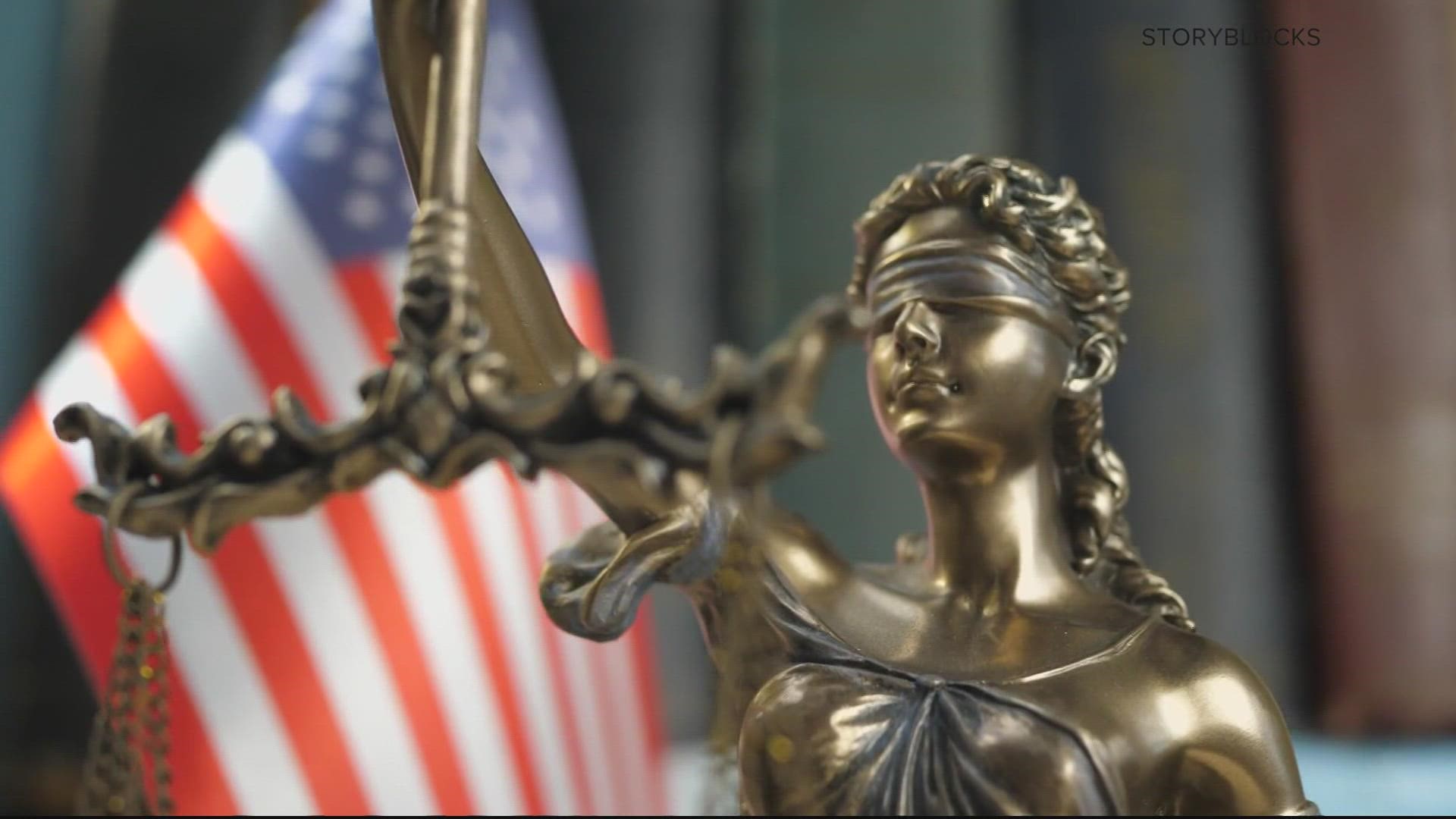WASHINGTON — As the country continues to debate how to stop mass shootings like those in Buffalo, Uvalde, and Tulsa just in the past few weeks, some are pointing to red flag laws as a possible solution. Some states have already taken up the measures as Congress weighs the possibility of similar laws on a federal level.
THE QUESTION:
Are there red flag laws in Washington D.C., Maryland, and Virginia?
THE SOURCES:
- Dr. Jody Lyneé Madeira, Indiana University Bloomington Maurer School of Law
- Jacob Charles, Executive Director of Duke University Center for Firearms Law
- Timothy Lytton, Georgia State College of Law
- Washington D.C., Maryland, and Virginia law
THE ANSWER:
Yes, the DMV has red flag laws, though most of the country has yet to do the same.
WHAT WE FOUND:
These red flag laws are a tool meant to keep tragedies from happening by keeping guns out of people’s hands–at least temporarily.
“It's really a way to try and disarm people who are plausibly at risk of misusing weapons,” said Timothy Lytton, professor at Georgia State College of Law.
People connected to a “potentially dangerous individual” can petition for what’s called an “extreme risk protection order,” which temporarily prevents that individual from owning or buying firearms and ammo.
Part of a wave of similar laws following the massacre at a Parkland, Florida Highschool that year, D.C. and Maryland laws have been around since 2018–Virginia’s went into effect in 2020.
“These laws vary a great deal from state to state in terms of who can seek the extreme risk protection order, however, all have due process protections for individuals whose guns are seized, so that they can get their firearms back in a timely manner,” said Dr. Jody Lyneé Madeira with Indiana University Bloomington Maurer School of Law.
In DC:
The following concerned individuals can petition for an ERPO:
Family members
Guardians
Domestic Partners
Romantic Partners or Dates
Parent of a Child in Common
Roommates
Police Officers
Mental Health Professionals
District residents can file for an ERPO and then speak with the judge directly. During the COVID-19 public health emergency, Office of the Attorney General for the District of Columbia began allowing for ERPO forms to be filled out electronically; contact the court to complete the filing by phone at (202) 879-0157 or by email at domesticviolencemanagement@dcsc.gov. Petitions can also be filed in person at:
D.C. Superior Court
500 Indiana Ave. NW, Room 4510
Washington, DC 20001
Or
United Medical Center
1328 Southern Ave. SE, Room 311
Washington, DC 20032
In Maryland:
The following concerned individuals can petition for an ERPO:
Spouse
Cohabitant
Relative by blood, marriage, or adoption
Person with child(ren) in common
Current dating or intimate partner
current or former legal guardian
Law enforcement officer
Medical professional who has examined the respondent (this includes a physician, psychologist, clinical social worker, licensed clinical professional counselor, clinical nurse specialist in psychiatric and mental health nursing, psychiatric nurse practitioner, licensed clinical marriage or family therapist, or health officer or designee of a health officer who has examined the individual)
In Maryland, any of the aforementioned people can file for an ERPO with the court directly by obtaining the proper forms. These forms can be found online and filed with the District Court. Visit mdcourts.gov/district/directories/commissionermap for commissioner locations and mdcourts.gov/district/directories/courtmap for court locations.
In Virginia:
The following concerned individuals can request an ERSO:
Family Members
Guardians
Domestic Partners
Romantic Partners or Dates
Parent of a Child in Common
Roommates
Police Officers
Mental Health Professionals
Fairfax County’s description of the law clarifies that while a range of people can request an emergency substantial risk order, the official petition for an ESRO before the court must come from a Commonwealth Attorney or a police officer. They advise contacting the local police department’s non-emergency line or calling or texting 911 in an emergency to begin the process.
The laws in action
While the recent conversation has been connected to gun violence and mass-shootings, these red flag provisions can be enacted over concern for the individual’s safety, too.
“One of the ways that the empirical literature has shown these events successful is in reducing firearm suicides, which are often impulsive actions," explained Jacob Charles, Executive Director of Duke University's Center for Firearms Law. "Removing those guns from a crisis situation can have a real effect on suicide rates."
Some red flag law advocates say more people need to know about them, for the laws to be most effective–more law enforcement, health professionals, and families.
Like other legal cases, petitioners for “ERPO’s” or “ERSO’s” have to prove why the order is needed—and the person deemed “dangerous” gets their side, too.
“Oftentimes this is sort of what's called an ex parte order, it might be done quickly so that the firearms can be seized," said Madeira. "But very shortly after this ex parte order is issued, which does not require that the person actually be there who's going to be subject to the order, there's an opportunity for that person to say, 'well, no, there's, you know, some extenuating circumstances,' and present his or her side of the case."
Sometimes these orders are for two weeks, sometimes a year, which means the petitioner has to make their case for renewing that ban when its time is up.
Sign up for the Get Up DC newsletter: Your forecast. Your commute. Your news.
Sign up for the Capitol Breach email newsletter, delivering the latest breaking news and a roundup of the investigation into the Capitol Riots on January 6, 2021.

